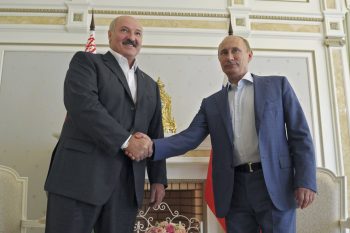
 February 2015 • Analysis •
February 2015 • Analysis •
The Eurasian Economic Union (EAEU) set to integrate four former soviet economies – those of Russia, Belarus, Kazakhstan and Armenia, – was finally launched on January 1, 2015. However, the initiative is now facing numerous challenges at both regional and bilateral levels. But the Ukraine situation has had some serious impact on Moscow’s relations with its EAEU counterparts. This article will look more in detail on how the Ukraine crisis has affected the Russia-Belarus relations: are we really facing a breakdown, or the current disposition just follows the logic of the «strange» partnership between Moscow and Minsk.
The Eurasian Economic Union (EAEU) set to integrate four former soviet economies – those of Russia, Belarus, Kazakhstan and Armenia, – was finally launched on January 1, 2015. However, the initiative is now facing numerous challenges at both regional and bilateral levels. First of all, for Russia, the whole idea of the EAEU was that of driving Ukraine into the economic alliance. Late in 2013, the chances to assure at least a certain level of an institutionalised economic cooperation between the Customs Union and Kyiv were still there. However, as the developments in Ukraine get more dramatic, the possibility of Ukraine ever joining Russia within the EAEU becomes bleak. Given that, the initial concept of gathering the national economies of the FSU region under the auspices of a new integration mechanism (dominated by Moscow) was called into question. But even more than threatening the viability of the EAEU as a whole, the Ukraine situation has had some serious impact on Moscow’s relations with its EAEU counterparts. This article will look more in detail on how the Ukraine crisis has affected the Russia-Belarus relations: are we really facing a breakdown, or the current disposition just follows the logic of the «strange» partnership between Moscow and Minsk?
